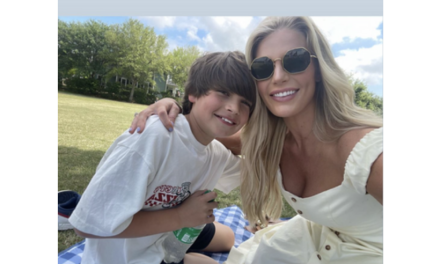
For most of us, if
we were heard in our past, it was within limits. More often than not, our
generation of women let men do the talking. We worked hard behind the scenes,
and consciously or unconsciously, allowed others to have the voice.
Now we are free to be
who we are, for ourselves, and for people who are important to us. It’s time we
are heard. One way is to tell our stories.
Humans have been
telling stories since we lived in caves. It is how we first exercised our voice;
how we get others to know us and experience what we experience. Storytelling is
in our DNA. We have an innate ability to tell stories. Here are five ways to revive
this skill.
Believe You Have a Story to Tell
If you don’t think
you have a story, or your story is not important, or that no one would care to
hear it – stop! You have a lifetime of stories.
You are an expert in your own life, and you have something to share.
Your story can
bring a smile or a thought from back when, it can tell us something about who
we are, where we’ve come from, and what matters.
Your most impactful
stories are the
ordinary ones.They are the stories women will
relate to. When women hear your story, they might think, “That happened to me, I
am not alone.”
Organize Your Story
It’s true that
events in your life may seem random and unconnected. From a story point of view,
however, it’s better to have a beginning, a middle, and an end.
Think about how
events are part of a journey toward making you the person you are today. Sharing
your stories can help you identify events. It also helps you remember details.
You are the author
of your life. You have a lifetime of stories. Organize them in the way they fit
in your mind and you believe makes sense.
In Dixie’s story, her landlord butchered a pig (beginning). Her son was curious and wished to witness the event, while her daughter ran in the opposite direction (middle). She acknowledges the family’s adventure through this experience (end).
Mireya’s story started when she broke away from a relationship (beginning). She went on a road trip alone (middle) and came face to face with herself, literally; bit the bullet, and moved on (end).
In my story, I started by
sharing what a monster my father was when I was a child (beginning). I expanded
on how I learned to love him as an adult (middle). As I learned to love him, I was
able to remember moments of sweetness with him as a child (end).
Don’t Judge Your Stories
Give your memories
and ideas a chance to live a little before you label them “not interesting.”
Remember that you
have a story. If you judge your story, you’ll shut your voice. Instead, explore.
Wonder. Feel. Let your story come out and play. Your storytelling becomes better
the more you share, and especially when you learn your why.
Along the Way, Explore Your Why
In the third most
watched talk on Ted.com, Simon Sinek explains that it is not enough for
organizations to know what they do and how they do it, they must know why. The
most successful organizations know their why. (Other than to make a profit,
which Sinek says is a result rather than a cause.)
Your why may be to
have fun, to try something new and see where it goes. To be heard. You may want
your children to know about how you grew up. Or inspire women with your story
of resilience; if you can do it, so can they. You may want to make us laugh and
spread joy.
You may have a strong
why buried inside you, or not. Exploring it and asking yourself what is
meaningful to you, what brings you joy, or peace, or excitement – whatever you may seek – adds
an exciting aspect to your storytelling, which can be invigorating.
Know that your why
can change. Exploring it strengthens your voice.
I started StorySistas in 2016, after I began writing
a play about five best girlfriends who were turning 60. It was lonely work.
In my almost 20
years in Austin then, I had not gone out and made friends beyond my immediate
neighbors and the mothers of my children’s best friends.
I shared a story at
a gathering and loved the experience so much, I decided that more than
anything, I wanted to gather with women my age and swap stories. My why was I
did not want to feel alone making up bff’s in my head. I wanted to have girlfriends,
lots of girlfriends.
As I started
sharing stories, I felt a strong connection to the me in those stories. When I
told a story from back when I was 14, about my brother’s circumcision, I began
remembering details of 14-year-old me.
I asked my siblings
if they remembered the “event,” and we talked for hours. Each sibling had their
own version of the story – especially the brother who was
circumcised!
When I shared this
story at a gathering, I connected with listeners. Family dysfunction is
universal, even if circumcising nine-year-olds is not. I love the connection.
When I tell stories,
I see past events with a dual perspective – from
the point of view of then, and from the experience I carry now. For instance, when
my mother asked me to care for her when I was three, my three-year-old self did
not know better and accepted.
Now at 63, I know
the burden was not for me to carry. After 60 years, I put down the load and feel
lighter. The more I tell the story, the lighter I feel; the more of me emerges.
See a Past Event with Your Mature Eyes and Tell That Story
Did you date the
bad boy in college? Did you marry him? Tell that story from the perspective of
your mature self – with all the things that life
has put into you. How would you tell the story? Is it a funny story? Poignant? Inspiring?
All three? However you tell your story, let your voice be heard.
According to Dr. Sherry Hamby, a Research Professor of Psychology, “People who have found their voice, shared their story, and reaffirmed their values often find a sense of peace and a hopefulness that they did not have before.”
Is this true for
you?
How often do you
share your life stories? Who is your usual audience? Are there lives you know
your stories have changed? What kind of story is yours? Please share with our
community!





